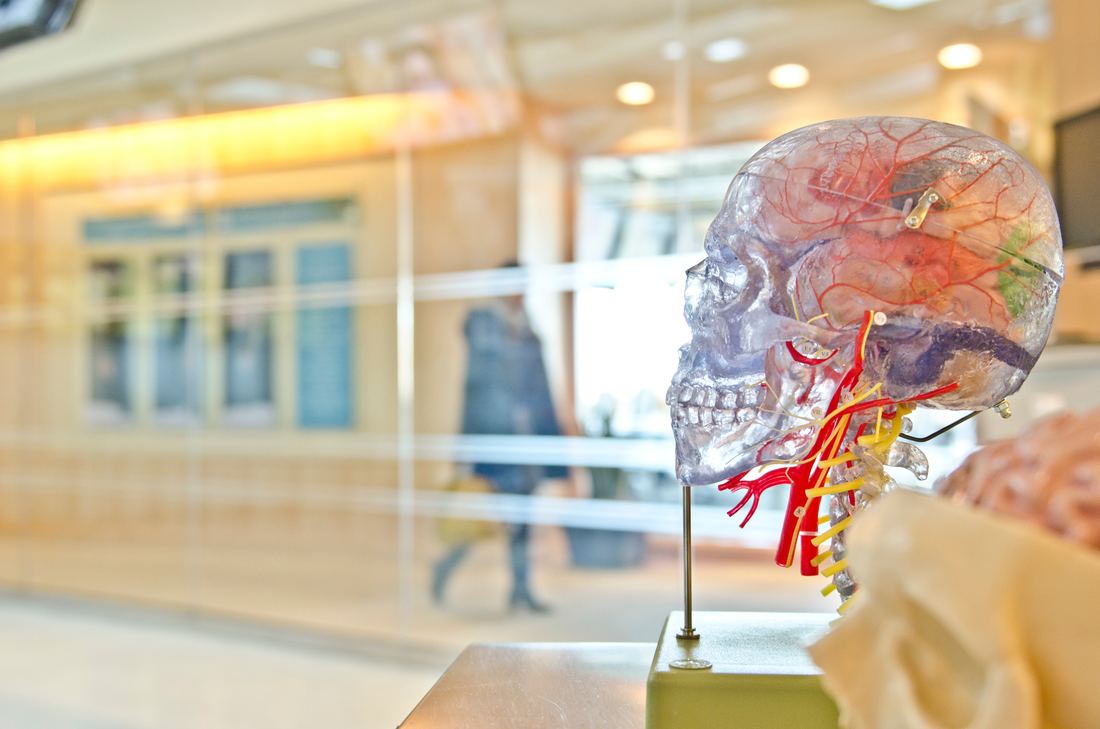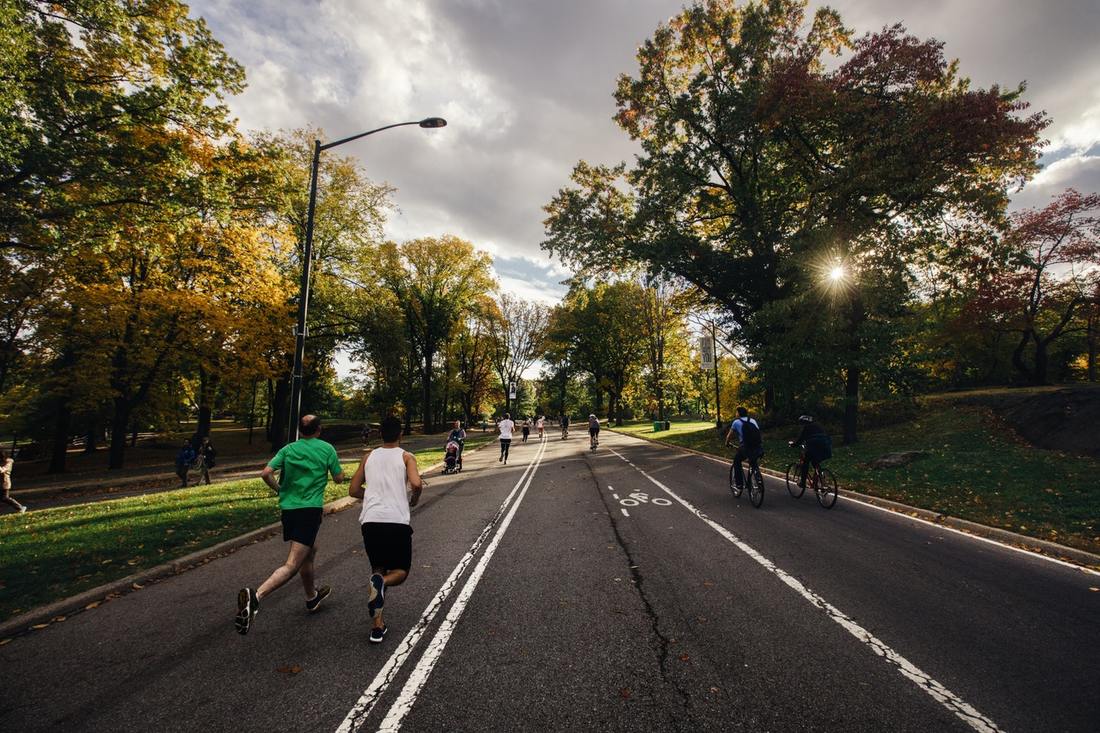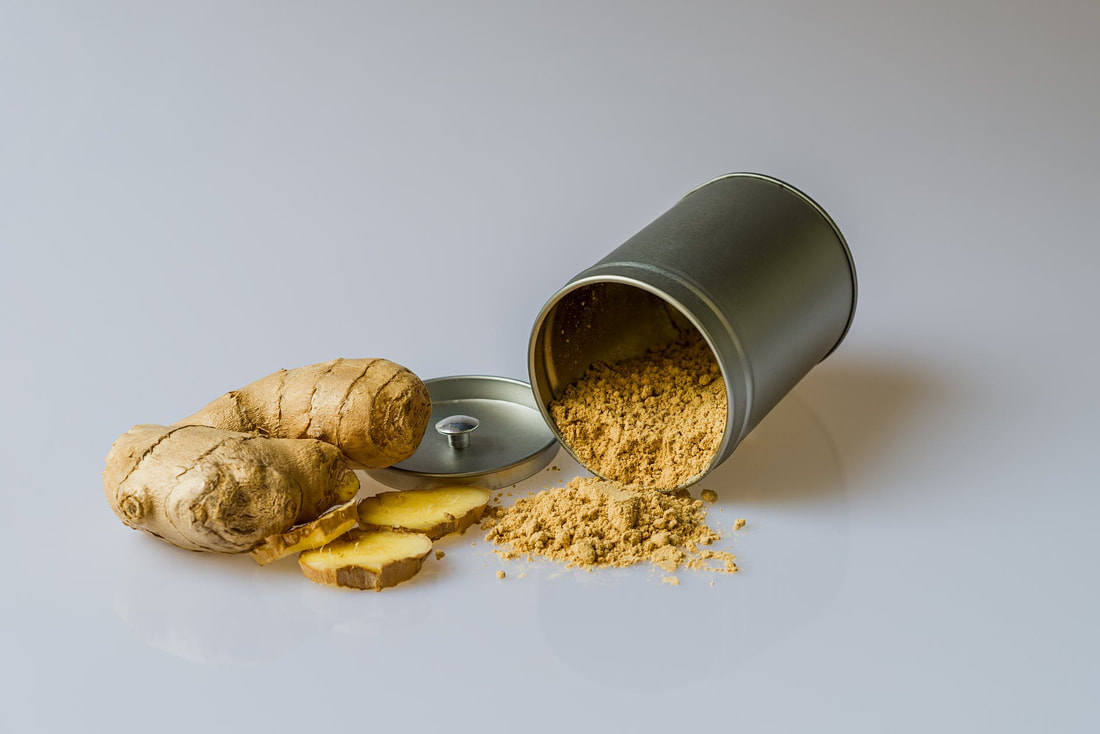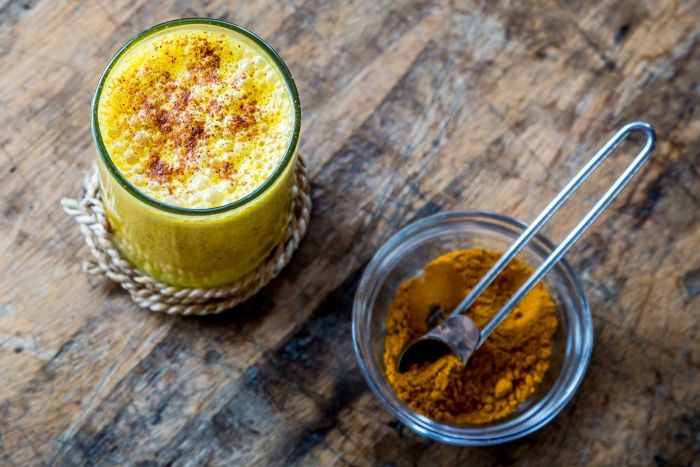|
In brand new research from the O’Dennell Brain Institute, scientists have suggested that a low level of fitness can speed up cognitive decline. According to the results, exercise protects against the deterioration of brain nerve fibres associated with memory retention.
"This research supports the hypothesis that improving people's fitness may improve their brain health and slow down the aging process," said head researcher Dr. Kan Ding. In the study, Dr. Ding analysed the link between fitness and the health of white matter in the brain of elder patients who were either at high risk of developing Alzheimer’s, or who were showing early signs of memory loss. "Evidence suggests that what is bad for your heart is bad for your brain. We need studies like this to find out how the two are intertwined and hopefully find the right formula to help prevent Alzheimer's disease," said Dr Rong Zhang of the Institute for Exercise and Environmental Medicine at Texas Health Presbyterian Hospital. Dr. Zhang has previously identified that physical activity increase the speed of brain messages sent to the body. However this new study, published in the Journal of Alzheimer’s Disease, is the first to take objective measurements of participants’ fitness levels, without relying on self-assessment, creating a much higher level of certainty to these hypotheses. To measure levels of fitness, the team subjected participants to a maximal oxygen uptake test before using brain imaging to monitor brain activity. The study is a strong affirmation of previous studies linking physical activity to healthy brain functioning, however Ding recognises that there is a lot more to learn. "A lot of work remains to better understand and treat dementia," said Dr. Ding. "But, eventually, the hope is that our studies will convince people to exercise more." This article was originally published at Men's Health
4 Comments
You know the feeling. It's 10:30, you're at work, you're stomach starts to say hello but it's still too early for lunch. Do you go for the biscuits? Well, try this recipe for peanut butter stuffed chocolate protein truffle balls instead.
Ingredients 2/3 cup mashed avocado ¼ cup + 2 tbsp chocolate protein powder 1/2 tsp vanilla extract 2/3 cup milk chocolate chips or ½ cup of cacao 5 tbsp Pics Peanut Butter ½ cup banana chips (crushed) Method
This recipe was originally published on Men's Health We're all guilty of it: gulping down breakfast before racing out the door, or wolfing down a sandwich before our lunch-break ends.
When life is fast and food is necessary, eating quickly, or on the go, seems to make our days easier — or at least more time-efficient. But it might be time to hit the brakes and savour every last bite. Earlier this week, researchers in Japan found slowing down the speed at which we eat may help us lose weight. It's not the first study to suggest eating slowly may have health benefits. But just how does it work? Allowing yourself to feel full It's thought the reason slow eating may potentially prevent weight gain is because of how long it takes for people to feel full. "It takes 15 to 20 minutes for those natural feedback mechanisms to kick in… they're physiological processes which are involved in recognising fullness, satiety and feeling satisfied from food," says dietician and associate professor Ben Desbrow from Griffith University. When you're eating quickly, your body doesn't get a chance to signal to the brain that you are getting full — and should probably stop eating. "You're more gauging how much you've eaten on external cues … in terms of the visual size of the food or the social context, as opposed to how you feel internally about whether you're satisfied or not." Study shows slow eaters least likely to be obese The Japanese study, published in the BMJ Open, looked at data collected from regular health check-ups and insurance claims from nearly 60,000 Japanese people with type 2 diabetes over a period of five years. During the health check-ups, participants were quizzed about their lifestyle, including whether their eating speed was fast, normal, or slow, whether they regularly snacked after dinner, skipped breakfast, or ate within two hours of going to sleep. The researchers found those who ate at a normal speed were 29 per cent less likely to be obese than those who ate quickly. And those that ate slowly were even better off — they were 42 per cent less likely to be obese when compared to fast eaters. Slow eaters also had a lower BMI and smaller waist circumference, on average. The researchers also found changes in these eating habits — eating slower and not snacking after dinner or before bed — were strongly associated with lower obesity, reduced BMI, and smaller weight circumference. "Interventions aimed at altering eating habits, such as education initiatives and programs to reduce eating speed, may be useful in preventing obesity," the authors wrote. Benefits of eating 'mindfully' According to Dr Desbrow, the slower and "more mindfully" you eat, the more attuned you are likely to be to your body and the feedback it's giving you. "It comes back, to a degree, to allowing time to listen to what your body is telling you, as opposed to feeling a certain level of expectation or habit that forms around eating consumption," he says. We may live an increasingly fast paced life, but our biological systems aren't moving at the same rate that our working and social environments are changing, he says. "Food has never been more accessible, so it's not as if we're having to use external cues from the environment … we have to listen to our internal cues more robustly in order to understand what our body needs to survive." "It comes back to having a greater capacity to listen to what our bodies are telling us when we eat." The dietician also says the rate at which we eat may be somewhat of a proxy to our overall relationship with food, and that slowing down can help us to enjoy eating in the presence of other people. "I like to think that food is far beyond just a package of nutrients that supply us with fuel and make our bodies work. To me, food is very much about connectedness with one another," he says. Chewing more may help If you tend to eat on the faster side, putting down your utensils between bites or drinking a glass of water may help. There's also no harm in chewing your food a little more. "Anything that's broken up into smaller particles creates a greater surface area for digestive enzymes to have an effect, to potentially absorb and transport the nutrients that are in the food," Dr Desbrow says. "So, you may actually change the nutrient availability based on how much or how little you chew your food." He says if food stays in your mouth for longer, it's likely to enter your stomach at a slower rate. But have scientists worked out the right number of chews? "I don't think we have a magic number, but certainly more than half a dozen times. Quite often a relatively fast eater will only chew a small number of times," he says. The study has limitations While large, the Japanese study had its limitations: participants' eating speeds were based on subjective assessment, and researchers did not assess energy intake or physical activity levels. "The findings in this study are associations, rather than causations, so there's always a limit to what conclusions you can draw," Dr Desbrow says. "But it's an interesting idea, and I think there's merit to exploring it." Nevertheless, previous studies have shown a similar association between eating habits (including speed) and BMI and weight gain. Eating quickly has also been linked to impaired glucose tolerance, insulin resistance, and metabolic syndrome. No harm in slowing down While more research is needed to determine whether an individual's eating speed can directly contribute to their overall weight, Dr Desbrow says there's no evidence to suggest slowing down is harmful. "You typically see a small effect from slowing the rate at which people eat, all the way up to statistically significant effects in certain groups," he says. "What we haven't seen is evidence that slowing the rate of eating is detrimental." The dietician adds that being more attentive to the food you consume and the way your body responds to it is likely to be beneficial to your health in the long-term. "Science doesn't always have the definitive answers, but slowing down and eating more slowly is certainly not going to do you any harm, and is more likely to result in a healthier outcome. "It will also raise the pleasure associated with consuming food in the presence of other people." This article was originally published at ABC Health The next time you pound the pavement, pick your route carefully. Running and walking next to busy traffic can eliminate the benefits of your run, according to a new study.
Researchers from The Lancet in the UK studied 119 volunteers to determine the effects on the body experienced when breathing in car and truck fumes. The study conducted involved measuring the group after two separate walks. Both efforts were two hours long and happened at midday, with the difference coming in location. The first test was conducted after a walk in leafy Hyde Park, while the second, held 3-8 weeks after was held on busy Oxford Street. While the bulk of Hyde Park has pollution well within the healthy range, the bustling sidewalks of Oxford Street regularly register high levels of black carbon, nitrogen dioxide, and fine particulate matter. Following walks in Hyde Park, participants experience expected benefits associated with exercise, such as improved lung functioning, improved blood flow, and easing of artery stiffness. These effects were visible for up to 24 hours post exercise. However, after walking along Oxford Street, none of these physiological benefits registered for the participants. It seemed that the pollution levels inhaled during the walk almost nullify the benefits experience from exercise. "Walking exercise should be enjoyed in urban green space areas away from high-density traffic," advise the experts behind the study. This post was originally published on Men's Health You may have seen it popping up on cafe menus recently — the "golden latte". It's hot milk mixed with turmeric, coconut oil, maybe a bit of honey. Turmeric has been proclaimed a superfood; a health booster — the yellow powder used as a central component in Asian cooking for thousands of years. But what does the evidence say about the health benefits of taking turmeric? And are some forms better than others? Why turmeric? Long before it found its way to your latte, turmeric was known as a healing food in the ancient Indian system of medicine Ayurveda — where it was used to treat respiratory conditions or as a topical application to soothe or heal the skin. Many today use it mixed with milk or water to ease a sore throat or an upset stomach. But interest in the spice's possible health benefits ramped up after a 2006 studyfound that older Singaporeans who ate more curry had less cognitive decline. That led to research into which components of curry could be causing the effect, and a growing interest in the properties of turmeric. It's not the spice itself that's key, rather it's an active compound within turmeric called curcumin. Research has found that curcumin has some anti-oxidant and anti-inflammatory properties. "Curcumin is a very powerful anti-inflammatory agent," said Professor Manohar Garg, director of the nutraceuticals research program at the University of Newcastle. Because inflammation is linked to a range of chronic conditions and diseases, among them arthritis, Alzheimer's and heart disease, researchers argue curcumin could help reduce the risk of those diseases by limiting inflammation in the body. "It's very powerful, the most powerful food I know of, for fighting inflammation in the body," Professor Garg said. Research conducted by the professor and his team found those people taking a combination of curcumin and a phytosterol (a naturally occurring steroid found in plants) reduced their cholesterol levels over a four-week period compared to a group who received a placebo. "There's some cholesterol-lowering effect from curcumin, and some cholesterol-lowering effect from phytosterols, but if you combine them together it's a synergistic effect. It's beyond what you expect from the two compounds separately," Professor Garg said. Is curcumin a brain-booster? Other research into curcumin has focused on its potential to improve cognitive function, particularly in older people. Professor Andrew Scholey, director of the Centre for Human Psychopharmacology at Swinburne University, has a research group looking into this. In an experiment conducted by the group, researchers took 80 people in their 60s and 70s and gave some a curcumin supplement while others received a placebo. The study participants then completed computerised cognitive tests that used their working memory. "Working memory's where you hoard information in mind or in consciousness," Professor Scholey said. "If you're learning a new PIN for a credit card, the first thing you'll do is rehearse that number to try and make sure you consolidate it." The researchers found those in the group given curcumin supplements had better working memory and an improved mood while taking the cognitive tests over a 28-day period. Professor Scholey said it was possible the curcumin was improving blood flow to the brain in those who took the supplements. "There is some work showing that curcumin can improve what's called endothelial function — that refers to the cells that line blood vessels, which can be in various degrees of elasticity or stiffness," Professor Scholey said. "If your vessels are a bit more elastic then you have better blood flow to all organs, including the brain. The better your blood flow to the brain is, the better your cognitive function is likely to be. We figure that's one aspect." Professor Scholey's study was funded by a manufacturer of a turmeric supplement, but they had no input into the study design or its findings. How strong is the evidence overall?
Both Professor Garg and Professor Scholey said while their recent results were promising, it's still early days when it comes to establishing the health benefits of turmeric. "We have some evidence, if you look at the in vitro cellular studies, if you look at animal studies, the evidence is very strong," Professor Garg said. "But humans are not animals. We need to provide more evidence from clinical trials… to get solid evidence of the health benefits of curcumin." How much do you need to take? The amounts of curcumin used in the above studies were quite high — from about 80 milligrams (in the cognition study) through to 200 milligrams (in the cholesterol research). Professor Garg said you'll get between 100 to 150 milligrams of curcumin in a full teaspoon of turmeric, but it can vary from powder to powder. The other thing to think about is that curcumin passes through your body quite quickly. In order to keep enough of it in your body to be effectively absorbed and useful, you'd want to be having it with lunch and dinner most days of the week (as in some Indian diets), Professor Garg said. "I'm in favour of getting it from natural foods, and if we can get enough curcumin from turmeric, that's the best way of consuming these products," he said. The other option is to take supplements, some of which may be tweaked so they're more readily absorbed by the body, Professor Scholey said. "The question is when you eat turmeric as a powder, how much is actually going to be absorbed?" he said. "Studies seem to show it's unlikely to be absorbed at the same level as some of these commercialised extracts, which I know doesn't sit beautifully with a nice picture of natural foods and products having these benefits, but unfortunately that's what the science shows." And the golden latte so popular at hip cafes around Australia's inner cities? If you're having it as a one-off thing, it definitely won't have a high enough dose of curcumin to have an impact on your health, Professor Scholey said. "Most of the curcumin within that turmeric latte is likely to come out the other end, unfortunately," he said. Can you take too much? Using turmeric as a spice in food is safe — the only danger being if you use too much, you might have an upset stomach. But while turmeric shouldn't be a problem, taking concentrated curcumin in a supplement form can be dangerous for those who are on blood-thinning medications. "If you're on medications like aspirin, warfarin, ibuprofen, naproxen, all these medications are anti-coagulants," Professor Garg said. "So if you take curcumin along with these medications, one needs to be a bit careful because it can reduce the clotting time and may increase bleeding, especially if you're undergoing some kind of surgery." Originally published on ABC Health. You may be familiar with that feeling of overwhelming sleepiness during the mid-afternoon. It's common, occurs whether you've eaten lunch or not, and is caused by a natural dip in alertness from about 1:00pm to 3:00pm. So, if you find yourself fighting off sleep in the middle of the day and you're somewhere where you can have a nap, then do it. Taking the time for a brief nap will relieve the sleepiness almost immediately and improve alertness for several hours after waking. And there are many other benefits, too. Understanding why we nap People nap for lots of reasons, some which are:
Napping is relatively common. In fact, about 50 per cent of us report taking a nap at least once per week. Napping rates are greater in countries like Greece, Brazil and Mexico that have a culture of siesta, which incorporate "quiet time" in the early afternoon for people to go home for a nap. In such countries, up to 72 per cent of people will nap as often as four times per week. The perks of napping Naps are not only beneficial because they make us feel less sleepy and more alert, but because they improve our cognitive functioning, reaction times, short-term memory and even our mood. Our research (not yet published) has found those who regularly nap report feeling more alert after a brief nap in the afternoon when compared to those who only nap occasionally. Another research group found that motor learning, which is where brain pathways change in response to learning a new skill, was significantly greater following a brief afternoon nap for regular nappers when compared to non-nappers. In fact, the overall benefits of naps are similar to those experienced after consuming caffeine (or other stimulant medications) but without the side effects of caffeine dependence and possibly disrupted sleep at night time. How long should a nap be? The amount of time you spend napping really depends on the time you have available, how you want the nap to work for you, and your plans for the coming night. Generally speaking, the longer a nap is, the longer you will feel rejuvenated after waking. Long naps of one to two hours during the afternoon will mean you are less sleepy (and require less sleep) that night. This could mean it will take longer than usual to fall asleep. If you are planning to stay up later than usual, or if taking a little longer to fall asleep at bedtime is not bothersome, time your nap for about 1.5 hours. This is the length of a normal sleep cycle. You will experience deep sleep for about an hour or so followed by light sleep for the last half an hour. Waking up during light sleep will leave you feeling refreshed and alert. However, waking during deep sleep will not. If you sleep too long and miss the light sleep at the end of a nap, chances are you will wake up feeling sluggish and drowsy. If you do experience feeling drowsy after a nap, don't worry — this feeling is temporary and will go away after a while. Another option is to have a brief "power nap". Brief naps of 10-15 minutes can significantly improve alertness, cognitive performance and mood almost immediately after waking. The benefits typically last for a few hours. Power naps are great because you won't experience any sluggish or drowsy feelings after waking. This is because you do not enter any deep sleep during this brief time. Research suggests, a brief, early-to-mid-afternoon nap provides the greatest rejuvenation when compared to naps at any other time of the day. However, if you're struggling to stay awake, a brief nap taken at any time can be help keep you alert. Nicole Lovato is a postdoctoral research fellow at the Adelaide Institute for Sleep Health, Flinders University. Originally published in The Conversation |








